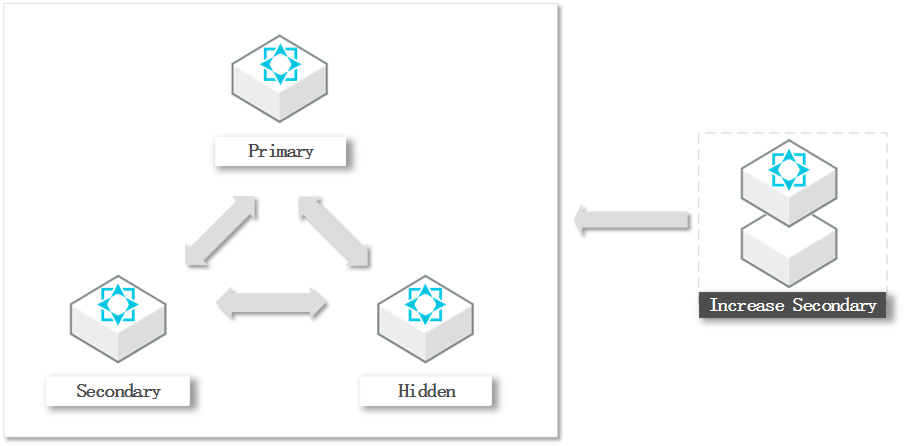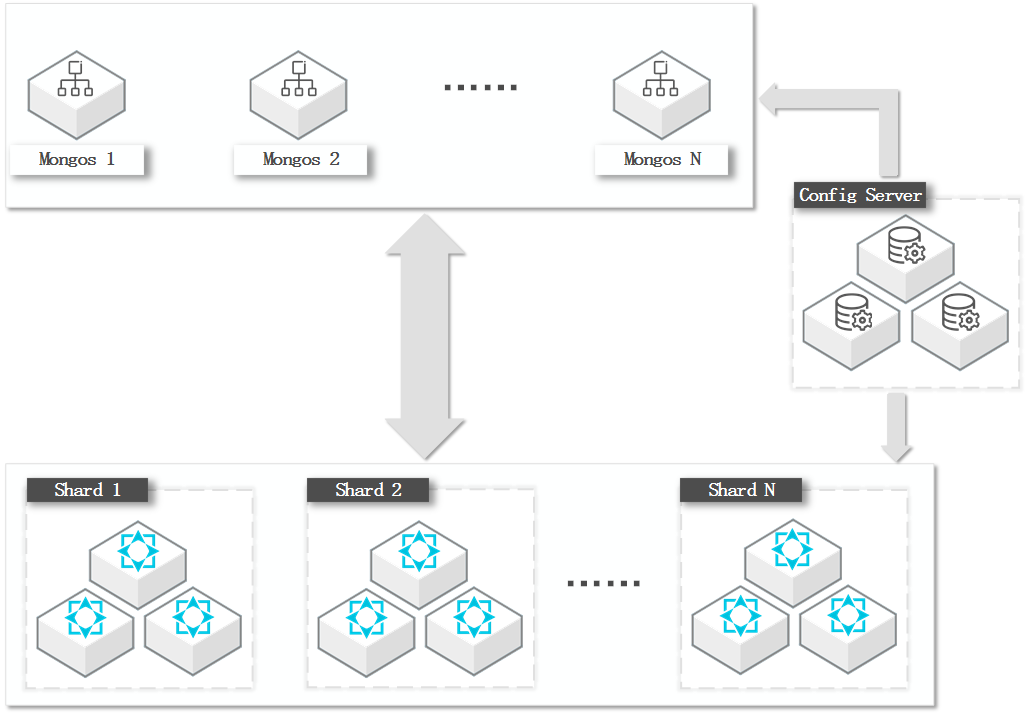This topic describes the node fault handling mechanism of ApsaraDB for MongoDB instances.
Standalone instances
A standalone instance has only one node. If the node is faulty, the system troubleshoots
the node. The relevant services become unavailable during troubleshooting.
Note Standalone instances are applicable to test, training, and non-core business scenarios.
If your application is in a production environment, we recommend that you use replica
set or sharded cluster instances to ensure high availability (HA).
Replica set instances

A replica set instance provides multiple nodes. If one of the nodes is faulty, the
system switches over to the secondary or hidden node without interruption and then
troubleshoots the faulty node. The entire process is transparent to you. A transient
connection error of less than 30 seconds may occur during the process. We recommend
that you configure your application to automatically reconnect to the replica set
instance after a transient connection error occurs.
Note If your application is in a production environment, we recommend that you do not use
the connection string of the primary node but use a connection string URI to connect
your application to a replica set instance. When you use the connection string URI,
the read/write operations of your application remain available even if a node of the
instance is faulty. For more information, see Overview of replica set instance connections.
Sharded cluster instances

In a sharded cluster instance, both the shard and Configserver nodes use three-node
replica set architecture. When a node is faulty, the system switches over to the hidden
node without interruption and then troubleshoots the faulty node. The entire process
is transparent to you. A transient connection error of less than 30 seconds may occur
during the process. We recommend that you configure your application to automatically
reconnect to the sharded cluster instance after a transient connection error occurs.
Note
- A mongos node uses a single-node architecture. If a mongos node is faulty, the relevant services become unavailable.
- If your application is in a production environment, we recommend that you do not use the connection string of a mongos node but use a connection string URI to connect your application to a sharded cluster instance. When you use the connection string URI, your client automatically redirects requests to the mongos node in the normal status if the connected mongos node is faulty. For more information, see Overview of sharded cluster instance connections.